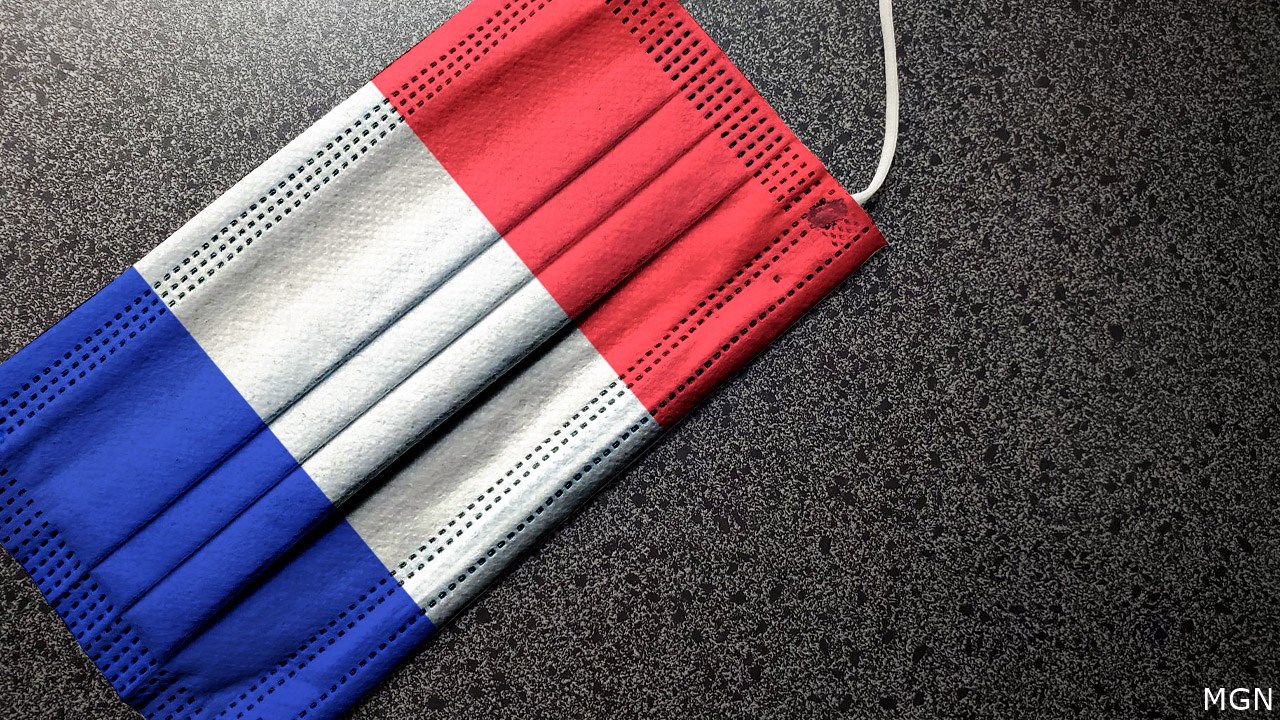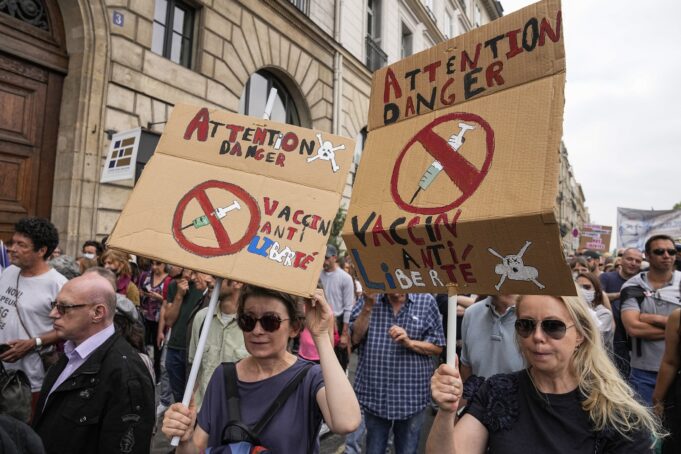In the aftermath of protests in France, the government is moving ahead with its controversial Covid-19 vaccine mandates. The French parliament passed a law requiring vaccines for all health workers and special virus passes for domestic travel and restaurants. It is a move that did not sit well with thousands who view it as government interference into personal, private matters of French citizens.
The law requires all workers in the health care sector to start getting vaccinated by Sept. 15, or risk suspension. It also requires a “health pass” to enter all restaurants, trains, planes and some other public venues. It initially applies to all adults but will apply to everyone 12 and older starting Sept. 30. The law was passed by the Senate and National Assembly.
To get the pass, people must have proof they are fully vaccinated, recently tested negative or recently recovered from the virus. Paper or digital documents will be accepted. The law says a government decree will outline how to handle vaccination documents from other countries. A pass is also required for entrance to sports and cultural venues.
During the first weekend in August 200,000 people took to the streets in Paris and other cities to vent their anger and frustration. There were also protests in Italy and Switzerland. In Lucerne, Switzerland approximately 4,000 gathered to protest vaccine restrictions. According to Euro News in Italy, there were two protests in Rome, one organized by political groups opposed to restrictions on vaccinated people and the other by bar and restaurant owners. In that country, “The Green Pass” will be required in the country from August 6 to enter most indoor public spaces, reported euronews.com.
According to media reports most of the protests in France were peaceful but there were some clashes with police. Over 3,000 security forces were deployed for what was the third weekend of demonstrations. In Bastille, police used water cannons on demonstrators.
On July 24 over 160,000 French citizens took to the streets en masse to protest sparking clashes with police. A week prior, over 114,000 took to the streets. Demonstrations were held in Paris and other cities including Marseille, Montpellier, Nantes and Toulouse.

Protesters held signs, one stating, “Health pass first step to hell … .” Many called the law a “health dictatorship,” and an encroachment on their civil liberties. “The pressure they are putting on employers, shops, restaurants and so on is for us, a sort of dictatorship,” an older female protester told France 24.
Another female protester told the news outlet that though she was fully vaccinated she was participating in demonstrations. “I’m vaccinated and I’m here because its not a question of being for or against vaccines. It’s a question of freedom,” she said.
A male protester called the measures “discriminatory” adding, that the mandates are dividing citizens. Police fired tear gas on several occasions as pockets of protesters overturned garbage cans and set a mechanical digger alight, reported Reuters. Some protesters away from the skirmishes wore badges saying “No to the health pass,” the outlet reported.
President Emmanual Macron argued the vaccine is the best way to control the virus particularly amid the spread of the Delta variant.
The July 14 protests occurred on Bastille Day, the anniversary of the 1789 storming of a medieval fortress in Paris marking a turning point in the French Revolution.
“Among other proposals in the government’s draft bill is the mandatory isolation for 10 days of anyone who tests positive, with police making random checks, French media reported. The prime minister’s office did not respond when asked to confirm the detail,” reported Reuters.
“I am against vaccination both for medical reasons—especially safety and weak safeguards—and political reasons because the vaccine is imposed on us,” Bruno Courcelle told Euronews.
“And if you are against the vaccine, you are logically against mandatory vaccination,” he told the outlet, according to euronews.com. (Final Call staff and Associated Press contributed to this report.)













